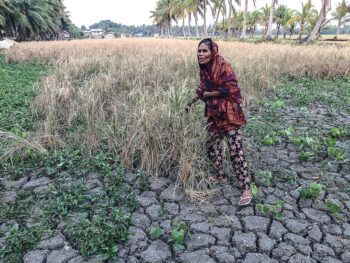DAVAO CITY (MindaNews / 29 May) – Marking the International Day of Action for Women’s Health last May 28, women leaders called for the implementation of policies related to women’s access to health care and to stop privatization of health services.
For Councilor Leah Librado, chair of city council committee on women, children and family relations, it was an opportunity to raise the issue on teenage pregnancy in the city.
“I can see the need to strengthen the information drive with regards to ‘teenage pregnancy’ perhaps, include in the school curriculum the subject pertaining to Adolescent Health Care,” she said in a press statement.
Librado noted the role of schools to “boost their guidance counseling mechanisms” to help teenage students “process their thoughts and emotions with regards to adolescent sexuality, behaviors and relationships.”
She also mentioned the Women Health Care Clinic located at the Southern Philippines Medical Center here. The city ordinance creating the clinic, which was approved in 2010, also mandates to provide health care services to the youth and adolescents and provide them education and counseling on sexuality, sexual and reproductive health.
“The city has enough laws but what we need is to implement the laws to materialize its objectives…. There are laws we need to update and amend,” Librado said.
Gabriela Women’s Partylist Rep. Luzviminda Ilagan, in her privilege speech in the plenary session in Philippine Congress last Wednesday, discussed the healthcare situation in the country.
She said that while President Benigno Simeon Aquino III hosted the World Economic Forum last week, he “minced no words in the government’s intent to further involve the private sector, multinationals and big businesses in various public interests.”
Privatization of hospitals and other medical facilities is not the solution to the “wanting and deteriorating” health care in the country, according to Ilagan. She pointed out that private sector businesses aim more to earn profit than to provide health services.
She cited that 6 out of 10 die annually without any medical attention; 80,000 babies die every year of easily preventable and curable causes; nine mothers die everyday of childbirth and pregnancy-related complications; and only 17,000 out of 41,000 barangays have barangay health stations.
“To address all of these, there is a need to create the infrastructure, invest in healthcare facilities and in our healthcare professionals,” she said.
Ilagan also urged the House of Representatives to ensure the allocation of sufficient funding for the creation of infrastructure, facilities and the remuneration for healthcare professionals. She mentioned that while the World Health Organization recommends to allocate five percent of gross domestic product to health care spending, the government has been “allocating less and less for public health”.
